Just-in-time auto industry news and analysis
As a tiny token of support for Ukraine, we have blocked all traffic from Russia and Belarus.
If you run a website, please do same.
To do more, donate to Ukraine’s defenders.
Find your backstories
The Daily Kanban Newsbot
Only admnistrator owned posts can execute the
Only admnistrator owned posts can execute the [includeme] shortcode. This message is shown only to administrators. shortcode. This message is shown only to administrators. 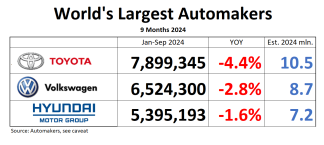
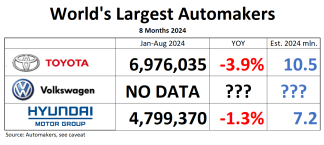
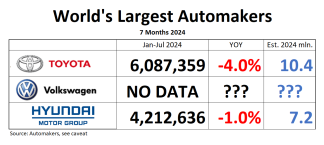
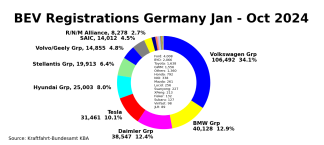
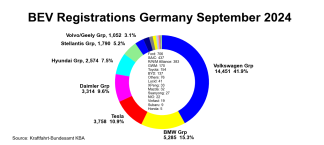
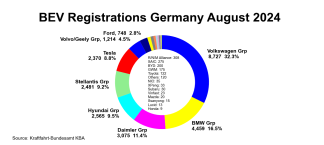
The RenCen Commentaries: Background and Analysis
When Bertel first told me he had traced a large numbers of comments at The Truth About Cars to I.P numbers owned by General Motors, the revelation didn’t immediately floor me. TTAC has long prided itself on its knowledgeable and industry-savvy commenters, and various industry insiders have been known to leave comments there. On a certain level, getting comments from inside any automaker is simply a sign of TTAC’s influence in the industry.
But as the scope and specifics of Bertel’s findings were made clear to me, I quickly came to the conclusion that they deserved a public hearing. After all, the evidence suggests that multiple employees of a publicly-owned company anonymously trolled and shilled on a critical website, all from company headquarters. If nothing else, people seem confused about the ethical complexities of online advocacy, and a conversation about the issue appears in order.
Though a story like Bertel’s would be of interest in any industry/media circle, it’s especially important in light of the profound asymmetry of information between the auto industry and the media that covers it. The short explanation is that being an auto “journalist” is a little like being a 7-year-old tasked with watchdogging your parents: all you have to go on is what they show you.
Access to new cars is tightly controlled, and access to executives, facilities and story-worthy data is even more tightly controlled. The mainstream auto media is sated with press cars, lavish junkets, and the slightly-forced personal charm of hobnobbing executives. Consumers, meanwhile, get whatever information the automakers choose to pass along this comfortable channel.
Happily, the internet has given rise to websites like TTAC that choose to put consumer advocacy and the public right to information above the interests of automakers. But this is hardly the path of least resistance, involving constant battles for access, grueling hunts for information and fielding complaints from grumbling PR officials. When I edited TTAC, I kept perspective through such travails by reminding myself that I was taking the difficult path on behalf of TTACs readers and commenters who had few other options for truly independent auto coverage.
Indeed, comments were in many ways the guiding light for me when I took over TTAC in 2009. I knew many of our commenters had more industry experience than I ever would, and I was anxious to hear their perspectives. At the same time, I knew the last thing a site like TTAC needed was industry shilling in the comments.
Prior to this point employees of automakers occasionally posted comments that clearly identified their employers, most prominently a GM employee named Christy Garwood. Though a passionate advocate for and defender of GM, Christy always made it clear she depended on the company for a paycheck. TTAC’s founder had built the site’s ethical foundations around precisely this sort of disclosure, and it allowed readers to discern insider perspective from self-interested spin.
Within a month of taking over, I promulgated a commenting policy which, among other things, stated:
In retrospect, the last sentence of that sentence reeks of youthful naivete… and if I had made the time for an even minor investigation, I would have found that hundreds of comments had already been posted from GM I.P. numbers. Indeed, it couldn’t have been more obvious: overnight, several commenters re-registered with “of GM” attached to the end of their familiar usernames. But such were the challenges of running TTAC that I never looked into the issue, nor did I notice when the “of GM” usernames quietly disappeared and never reappeared. The days of open disclosure by OEM employees was largely over.
This all took place before the Summer of 2011, when GM CEO Dan Akerson instituted his “Winning With Integrity” ethics code [PDF]. Which is fascinating, considering the code called for the basic approach Christy Garwood had embodied before I started writing at TTAC, or Akerson showed up at GM, to wit:
Comments traced back to GM-owned I.P. numbers violate every principle in this code, both before and after it was promulgated. Some of these comments reflect poorly on GM and its employees, demonstrating crude language and obnoxious attitudes, but the broader issue is the extent to which GM employees advocated on behalf of their company from positions of anonymity. In some cases, GM-linked commenters took TTAC writers to task anonymously even as Christy Garwood was publicly and openly defending GM. And by the time Akerson’s launched his effort to revive GM’s ethics code, Christy had stopped commenting and GM’s employees seemed to have given up completely on her style of above-board, transparent advocacy.
Instead, GM’s employees decided either individually or collectively to present their pro-company opinions as an apparent concerned bystander in the digital crowd. In doing so, they were trying to steal that rare commodity that is one of the only real powers the left to “regular people” in a world of increasingly asymmetrical power: the credibility of the everyman. When a company or its agents says something, consumers know they have a profit incentive to massage the truth and rely on individuals and the media to independently check the company’s claim; by posing as faceless netizens, GM’s employees were gaining credibility they wouldn’t have had if they had publicly identified themselves. And they used that anonymity to forward company arguments about everything from new car marketing to the politics of the bailout.
Not every comment linked to a GM-owned I.P. comes across as a conscious shill, and some of the GM-linked profiles seem clearly to belong to bored car nuts. Others, like “nadude,” were known by TTAC staff to be GM executives (in nadude’s case, GM’s President for North America Mark Reuss), and though he wouldn’t clearly disclose his identity in comments we knew from his username who he was. Subtleties like this show how thin the line is between disclosure and anonymity: clearly Reuss wasn’t trying to hide his identity, but neither did most commenters understand who exactly was leaving comments as “nadude.” Similarly, the fineness of the line between arguing on behalf of ones employer and dispassionately discussing automotive issues creates a good deal of ambiguity around other GM-linked comments and commenters. One man’s shill is another man’s even-handed observer.
What this story illustrates more than anything else is how poorly executives and employees of major automakers like GM understand the asymmetry of information between industry insiders and consumers and observers. Forums like TTAC were created specifically because of the immense control the industry exercises over the media that is supposed to watchdog it; for GM’s executives to infiltrate one of the few bastions of non-commercial discussion of cars and the car business represents an attempt to control every aspect of information regarding the auto business. It demonstrates that GM sees consumers, the media and the very public that bailed it out as sheep to be manipulated rather than partners and customers whose deserve truth and respect.
GM’s rescue by reluctant taxpayers is what ultimately makes this story so disheartening: having covered the bailout for some time, I’ve found countless examples of the government and GM working together to obscure the hard truths of the auto bailout. Finding that GM executives and employees were behind TTAC comments that led me to believe average Americans simply aren’t interested in understanding the truth behind the auto bailout is the real loss of innocence for me in this story. It’s hard enough to cover complex and divisive stories; doing so while being sockpuppeted and trolled by officers of the company you’re covering posing as concerned bystanders is harder still.
At the end of the day, this is a reality that journalists and online community managers are going to have to deal with increasingly as online discourse becomes the new norm. The raft of comments that Bertel traced to GM headquarters were found almost by accident, and only then because GM made no effort to conceal its I.P. location. As companies become more tech savvy, it’s inevitable that this type of employee commenting will continue with ever-greater anonymity. The temptation to anonymously interfere with online discourse is strong, and the technology will only make it more possible. It’s highly likely that the comments we caught from GM are simply the sloppy tip of a giant iceberg of online trolling and sockpuppeting.
Assuming this is the case, blogs and forums that value user-generated content must be aware that the companies they cover face the constant temptation to pose as faces in the crowd. It’s unlikely that we’ll ever be rid of shills and paid trolls, but performing regular investigations into the source and tone of suspicious comments should become best practice for webmasters hoping to generate honest discourse. Also, clearly-marked and consistently-enforced comment policies will help company employees know when they are crossing ethical lines. But most of all, the takeaway from this investigation is a traditional caveat emptor: it’s worth questioning the motivations and source of almost everything you read online, whether it’s a full-length post or a short comment. After all, you can never quite be sure what lies beneath.